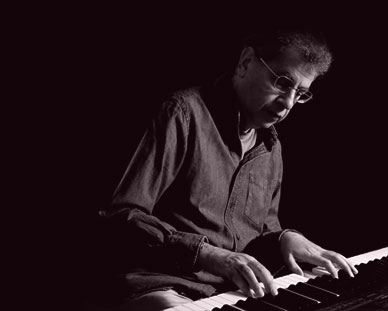Even if I had an answer, a better question might be: what was jazz? Whichever way you wish to describe jazz through the 20ʼs and 30ʼs, be-bop musicians such as Charlie Parker and Bud Powell changed it forever. But since then the musical landscape has slowly transformed into something else. For better or worse, jazz has now permeated into so many other genres that it no longer has a separate identity.
As a teenager I was drawn to soul and R&B. My favourite artist was Ray Charles. But was he playing jazz? Or perhaps it was the blues. His answer was that he was playing music. Were John Coltrane and Miles Davis still playing jazz by the end of their careers? Improvisation was their means of further exploration. Jimi Hendrix was doing the same thing.
Jazz or blues?
I have little interest in separating the two. In most cases, one is a part of the other. Some players such as Wynton Kelly are more influenced by the blues whereas others such as Bill Evans are less so. Even the phrase ‘12 bar blues’ is misleading.
For our purposes it is just a chord sequence over which to improvise. How bluesy or jazzy it sounds is up to you. Ultimately my aim as a player is not to improvise in a particular style but rather to express myself in the moment. It is a communication of how I feel rather than a style or genre.
Why all the theory?
If jazz musicians just play what they feel, why the need to learn about all these different scales, chord voicings etc. Do you really need to know what a Mixolydian mode is? My simple answer is that most aspiring jazz musicians needs to acquire some knowledge of how jazz ‘works.’ Having an understanding of the nuts and bolts of jazz theory makes it far easier to put it all together. Only then can you store it in the back of your mind and let instinct take over. There are the lucky few that possess a natural ability to play on instinct alone and they won’t be needing this course. But the rest of us need tools in order to enable creativity.
Nice jazz/nasty jazz
I have a friend who will only listen to so-called traditional jazz. To his ears anything from Charlie Parker onwards sounds discordant and incomprehensible. I have some sympathy with my friend. But at what point does ‘nice’ turn to ‘nasty’? Is there some defining musical moment when a sound is perceived as discordant?
Take the blues: the blues scale does not stand up to analysis; it really shouldn’t work. The sound of a flat 3 being struck over a major triad would make Mozart turn in his grave. But my friend has no objection to this sound, and this is because it at the very root of Rock & Roll, the music he grew up with.
So what is happening? As we move further away from the home scale, sounds become increasingly discordant and when improvising this is called playing outside. By incorporating these extensions and alterations, we are creating the spice and edginess that lies at the very heart of jazz (whatever jazz is). This is one of many skills that you are about to learn.
The aim of my course
Instinct and spontaneity are essential ingredients to your music making. But by the end of my course you will be coupling that spontaneity with an enlightened knowledge that will totally raise your game as a jazz pianist. So let’s begin!

